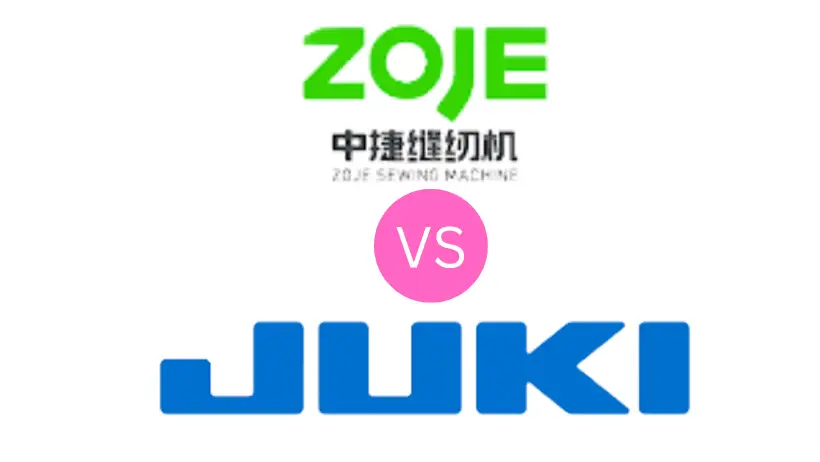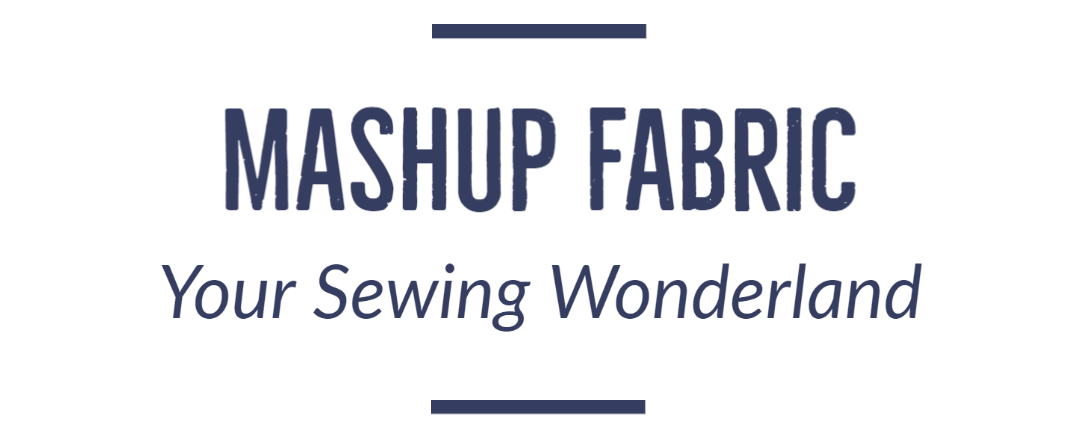Zoje vs Juki: Power, Performance, and Precision Compared
Zoje and Juki are two of the most popular sewing machine brands on the market today. With a wide range of models and features available, it can be tough deciding between these two heavy-hitters.
This blog post will provide a detailed comparison of Zoje and Juki sewing machines to help you determine which brand best suits your needs and budget.
We’ll examine the key factors that set these brands apart:
- Quality and durability
- Pricing across models
- Stitching abilities and performance
- Ease of use and learning curve
- Available features and customizations
- Fabric compatibility and applications
By the end, you’ll have a clear understanding of Zoje and Juki’s respective strengths and weaknesses. Let’s dive in and settle the Zoje vs Juki debate once and for all!
Sewing Machine Brand Overviews

When comparing Zoje vs Juki, it’s important to understand what each brand offers. This section provides an overview of both Zoje and Juki sewing machines.
Zoje Sewing Machines
Founded in 1978, Zoje has 40 years of experience creating affordable and user-friendly sewing machines. They offer mechanical and computerized options like the Zoje ZJ8500G.
Key Strengths:
- Durable all-metal construction
- Smooth and consistent stitch quality
- Wide range of stitches and functions
- Easy to thread and operate
- Affordable pricing
Ideal For:
- Beginners
- Home and hobby sewing
- Small businesses
Pricing:
Zoje machines range from $199 to $699, making them budget-friendly options compared to other brands.
| Model | Price |
|---|---|
| ZJ1500 | $199 |
| ZJ6200 | $299 |
| ZJ8500G | $499 |
| ZJ1290F | $699 |
Juki Sewing Machines
Established in 1938, Juki is known for high-quality industrial machines. They also offer computerized domestic options like the Juki HZL-F300.
Key Strengths:
- Powerful motors and high speeds
- Precise, consistent stitches
- Durable metal construction
- Advanced features and customization
- Renowned reliability
Ideal For:
- Experienced sewers
- Frequent/heavy duty sewing
- Commercial/industrial use
Pricing:
Juki machines range from $499 to $1,999 for more heavy-duty capabilities.
| Model | Price |
|---|---|
| Juki HZL-F300 | $499 |
| Juki TL-2000Qi | $699 |
| Juki DDL-8700 | $1,199 |
| Juki DDL-5550 | $1,999 |
Now that we’ve covered the basics, let’s compare these two brands head-to-head.
Direct Comparison of Zoje and Juki
When looking at Zoje vs Juki, there are several factors that set these sewing machine brands apart. This section provides a feature-by-feature comparison.
Quality and Durability
- Zoje machines are built with sturdy metal frames and components designed for longevity. They may not be industrial-grade, but deliver reliable performance.
- Juki is renowned industry-wide for their extremely durable construction. Many of their models boast all-metal internals and can sew through heavy materials without issue.
Advantage: Juki for unmatched durability, especially under heavy use.
Pricing and Affordability
- Zoje machines start at around $200 and top out around $700 for computerized models. This affordable pricing makes them very budget-friendly.
- Juki machines range from $500 into the thousands for industrial models. The computerized home machines carry a higher price tag.
Advantage: Zoje offers more wallet-friendly options.
Stitching Abilities and Performance
- Zoje machines deliver consistent, high-quality stitches across common sewing projects and fabric types. Reliable performance for the price.
- Juki machines are precision engineered for expert stitching. Expect professional-grade results even at high speeds with heavy-duty projects.
Advantage: Juki for stitching performance especially with demanding sewing work.
Ease of Use and Learning Curve
- Zoje machines live up to their reputation for being easy to thread, adjust, and operate even for beginners. Intuitive controls.
- Juki machines vary in their learning curve. Computerized models have an edge for simplicity, but industrial models may require more expertise.
Advantage: Zoje is generally more beginner-friendly, but Juki computerized models also offer ease of use.
Features and Customization
- Zoje tends to offer basic features suitable for basic sewing and mending projects. Less scope for electronic customization.
- Juki provides far more options for programming stitches, automation, adjusting settings, etc. Key for customizability.
Advantage: Juki has the edge for features and creative flexibility.
After-Sales Support and Servicing
- Zoje provides decent support but lags behind Juki. Limited authorized dealers and technicians in some areas.
- Juki has an extensive network of trained professionals providing repair services and support across the globe.
Advantage: Juki wins when it comes to service accessibility and part availability.
Fabric Compatibility and Applications
- Zoje machines can handle common fabrics from silks to denim, but struggle with very thick/dense materials.
- Juki machines are highly versatile and can sew through leather, denim, canvas and other heavy fabrics with the right needles.
Advantage: Juki offers more power and versatility to sew through thicker fabrics.
Now that we’ve compared the brands across these key factors, let’s summarize the main takeaways.
Choosing Between Zoje and Juki
When deciding between Zoje vs Juki sewing machines, there are a few key factors to consider before making your purchase. This section offers recommendations based on use case and skill level.
Key Factors to Consider
- Budget – Zoje is more budget-friendly, Juki offers premium performance at a higher price
- Sewing needs – Light vs heavy projects, types of fabrics, complexity of stitches/tasks
- User skill level – Beginner vs intermediate vs expert sewers have different requirements
- Availability – Zoje may be easier to purchase online, Juki has wider dealer network
Recommendations for Specific Users
For beginners:
Those new to sewing will appreciate an affordable machine that’s easy to learn. Zoje fits the bill with simple controls, automatic features, and low maintenance. Models like the Zoje ZJ6200 offer great value without overwhelming novice sewers.
For intermediate sewers:
With some experience under your belt, you may want more versatility to continue expanding your skills. The computerized Juki HZL-F300 provides a blend of user-friendly operation and customizable options for ambitious projects.
For experts/professionals:
Demanding sewing tasks require an industrial-level machine. The Juki DDL-8700 is built to withstand high speeds, long hours, and sewing rugged materials without sacrificing precision. Serious sewers will appreciate the quality.
For small businesses:
Price-conscious entrepreneurs may lean toward Zoje for outfitting a startup sewing studio on a budget. However, investing in a quality Juki machine can pay off long-term with their reliability and performance.
Key Considerations by Skill Level
| User | Key Considerations | Recommended Models |
|---|---|---|
| Beginner | Ease of use, budget | Zoje ZJ6200 |
| Intermediate | Versatility, intermediate features | Juki HZL-F300 |
| Expert/Professional | Durability, power, precision | Juki DDL-8700 |
| Small Business | Budget, reliability over time | Zoje ZJ8500G or Juki DDL-5550 |
Final Recommendations
For most home sewers, Zoje offers tremendous value. But for frequent sewing with specialty fabrics, Juki provides professional-grade engineering.
This comparison highlights how different needs impact the Zoje vs Juki decision. Analyze your budget, experience, and projects to decide!
The Verdict: Which Brand Comes Out on Top?
In the battle of Zoje vs Juki, is one sewing machine brand the clear winner? While both have advantages, the verdict depends on your needs as a sewer.
Summary of Brand Strengths and Weaknesses
Zoje shines when it comes to:
- Affordability and budget-friendly pricing
- Ease of use and operation
- Straightforward features suitable for beginners
Zoje falls short on:
- Durability for heavy/industrial sewing tasks
- Limited features for custom projects
- Availability of dealer support
Juki excels at:
- Powerful performance and stitching quality
- Precision engineering and durability
- Advanced features and customization
Juki lags behind in:
- Higher pricing, especially for computerized models
- Learning curve for beginners with industrial machines
Final Recommendation
For most home sewers focused on general mending/alterations or making simple apparel, Zoje offers tremendous value and capability. The affordable pricing and ease of use appeal to beginners.
However, for frequent sewing, industrial applications, or specialty fabrics, Juki wins out. Serious sewers will appreciate the engineering quality, stitch consistency, and customization abilities.
So the final verdict depends on assessing your needs and budget. For casual users, Zoje is likely the best choice. But frequent sewers have good reason to invest in a premium Juki machine.
It’s About Finding the Right Fit
Rather than declare one brand the undisputed winner, it’s wise to consider which model is the right fit for your requirements as a sewer. While Juki offers an edge in performance, Zoje fills the budget niche. Analyze your needs, skills, and finances to decide if one brand is better suited to you!
